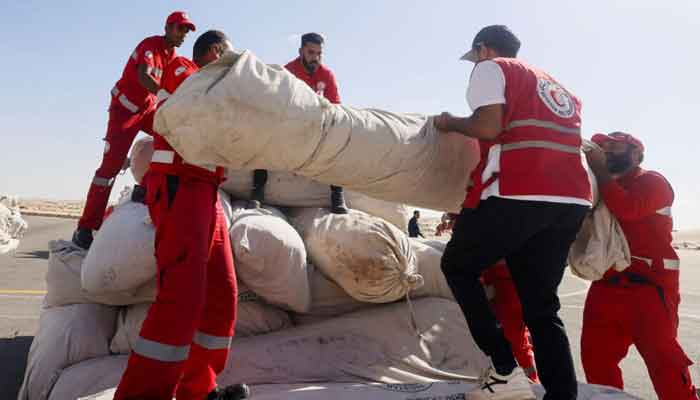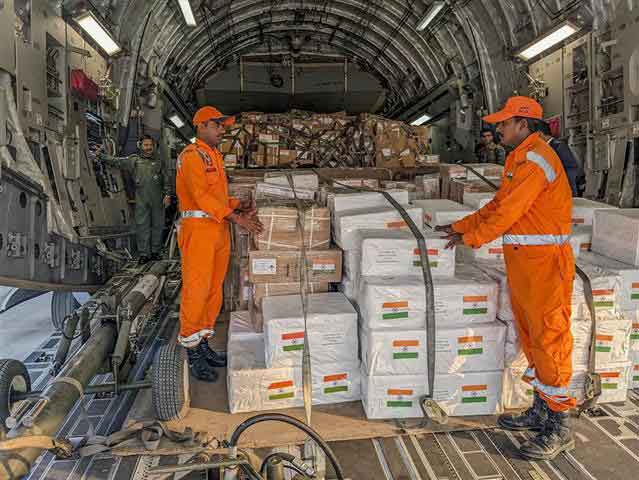
For the second consecutive day, a convoy with humanitarian aid entered the Gaza Strip today, although the United Nations affirms there is still a long way to go to cover the minimum needs of the 2.3 million Palestinians who live there.
Cairo.- National television stations showed 17 trucks, three of them from the Egyptian Crescent, entering the besieged enclave from this country through the Rafah border crossing.
For the first time since the beginning of the new cycle of violence, on October 7, yesterday morning a caravan of 20 vehicles crossed with water, medicine, and food.
The UN warned that a minimum of 100 daily trucks are needed to satisfy the basic needs of the inhabitants of that territory, subject to a total Israeli blockade for 16 days.
I am confident this delivery will be the beginning of a sustainable effort to provide essential supplies, said the United Nations Assistant Secretary for Humanitarian Affairs, Martin Griffiths, the day before.
The Israeli press revealed that, in exchange for his support for a military operation in Gaza, Biden urged Prime Minister Benjamin Netanyahu to allow food and medicines into the besieged territory, due to the wave of international criticism over the siege.
During a visit to Rafah on Friday, UN Secretary-General António Guterres stated that the arrival in that territory of the shipments gathered over several days represents “the difference between death and life.”
Last week, Egyptian Foreign Minister Sameh Shoukry considered attempts to misrepresent Cairo’s position on the status of the crossing unacceptable.
We never closed the site, but it is not operating normally due to four Israeli bombings, he noted.

UN WARNS OF SERIOUS FUEL CRISIS IN GAZA
Ramallah.- In three days we will run out of fuel in the Gaza Strip, and therefore many basic services will collapse, warned today a UN agency that provides aid to millions of Palestinians.
“Without fuel, there will be no water or hospitals or bakeries that will function. Without fuel, aid will not reach those who desperately need it. Without fuel there will be no humanitarian assistance,” warned the head of the United Nations Relief and Works Agency for Palestine Refugees in the Near East (Unrwa), Philippe Lazzarini, in a message.
In his statement, the official recalled that this organization is the largest humanitarian actor in the coastal enclave, where 2.3 million people live.
In this regard, he highlighted that currently, the UNRWA facilities in that territory host more than half a million people who took refuge there to escape the Israeli bombs.
Without fuel we will fail the people of Gaza whose needs grow hour by hour, under our watch, that cannot and should not happen, said Lazzarini, who criticized in recent days the bombings and the total blockade imposed by Israel as part of its war campaign.
“I call on all parties and those who influence them to immediately allow the entry of fuel and ensure that it is used strictly to avoid a collapse of the humanitarian response,” he stressed.
Although he welcomed the first inflows of humanitarian aid from Egypt, he assured that is still insufficient.
For Gaza to make sense, it needs an uninterrupted and expanded humanitarian supply line, he warned.
This Sunday, Unrwa reported on X (formerly Twitter) that at least 29 of its workers died in the enclave due to the Israeli attacks, which began 16 days ago.
We are in shock and mourning. Half of these colleagues were teachers. As an agency, we are devastated, he wrote on that social network. (PL)





